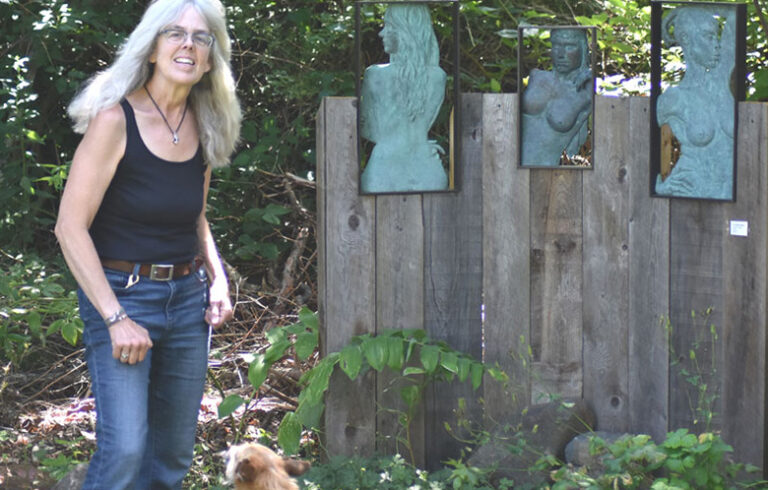In 1999 I was sitting in the Superior Court in Rockland, covering some routine motion hearing for the Bangor Daily News. The business concluded and all were asked to rise as the judge exited.
A minute later, the door to the right of the bench opened, and there stood the judge, his robe unbuttoned, gesturing toward someone in the small group milling about. The clerk gestured back, as if to ask, “Me?”
No, the judge indicated, and pointed again, more emphatically. I suddenly realized he was pointing at me and summoning me to the front. Everyone watched as I nervously made my way from the back of the courtroom. What had I done?
Fear and panic must have been on my face. The judge looked at me and said, “Do you want me to hire someone to take a decent picture of you?”
I burst out laughing.
That morning, the BDN had run a promotional photo of me and the other new reporter in the Rockland bureau, standing in front of the Owls Head Light. The photographer had made a joke, and I laughed as he clicked, resulting in my having a pretty goofy look on my face in the photo.
He was a prominent and well-liked attorney in the county, a status enhanced by his looks—tall, thin, with boyishly curly hair.
The judge was Francis Marsano, someone I had known in Belfast for years, meeting him when he was attorney for The Republican Journal, the weekly paper I joined in the late 1980s. He died in late December.
I cringe a bit when I think of my early interactions with him. I seemed to pick fights with him over his (moderate) Republican politics which, looking back, I think sort of amused him. After I became editor of the weekly, he told me he had edited the law review in college. Francis was a proud Bowdoin grad, then attended law school in Michigan.
He was a prominent and well-liked attorney in the county, a status enhanced by his looks—tall, thin, with boyishly curly hair. He moderated town meetings throughout the county and represented the school district and other public institutions, keeping him in the public eye.
But more importantly, he seemed to embrace public service, working on countless nonprofit boards.
Francis was elected to the Legislature and served as his party’s assistant leader in the House. The one night of the week we burned the midnight oil at the newspaper, I could look across Main Street to see the light on in Francis’s office; he would be in Augusta during the day, then attend to his legal work at night. I suspect he worked those hours every night.
A lawyer I knew once told me that Francis’s commitment to work contributed to ending his marriage. I was sorry to learn this.
His appointment as judge made Belfast residents proud. While covering other motion hearings in Rockland, where reporters sat in a box to the right of the judge’s bench, Francis would be listening to a lawyer droning on and give me a wink.
I used to joke that he would also “hold court” in the produce section of the Belfast Hannaford. We’d see him there, standing in one place as various local folks recognized and then began chatting with him.
He was always kind to and interested in my kids. I told them to address Francis as “your honor,” and my then-young son forgot the exact term and called him “your majesty.” Hey, close enough.
My wife Gail and Francis became friends, and in recent years, she spoke with him more than I did, as they saw each other on Belfast’s Harbor Walk. In fact, he was key in persuading older Belfast residents to support the restoration of the former Route 1 bridge as a footbridge, which is now a well-used part of that Harbor Walk.
Francis was always in great shape and climbed Katahdin every year well into his 70s. He also had an eye for pretty women; not leering, but you could tell he enjoyed noticing and chatting them up.
In the early 1990s, Francis was the judge in a high-profile case Downeast in which a father was accused of methodically beating his son with a baseball bat for various infractions. The boy died of internal bleeding.
I asked Francis how he could sit through the gruesome testimony, day after day. He said he would go see high school basketball games in the evening, just to be around normal folk to restore his perspective.
My connection to the man is but a sliver of his full life, but I treasure it, and I wonder if my generation is as committed to public service as his was.
Tom Groening is editor of The Working Waterfront. He may be contacted at tgroening@islandinstitute.org





